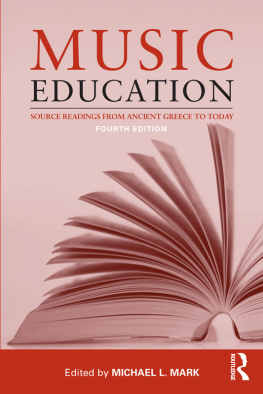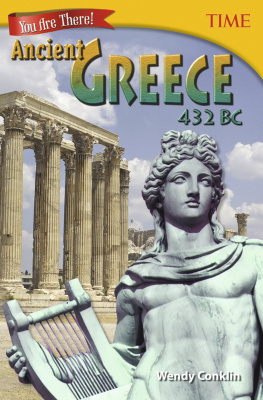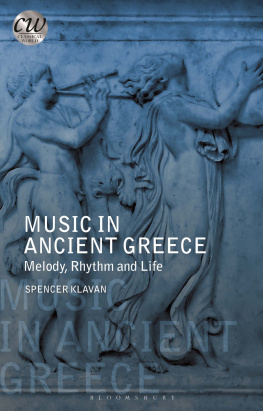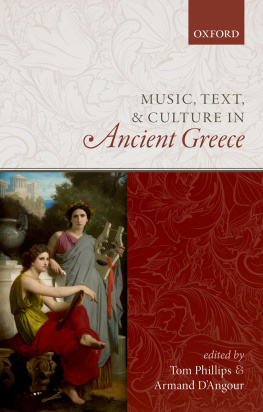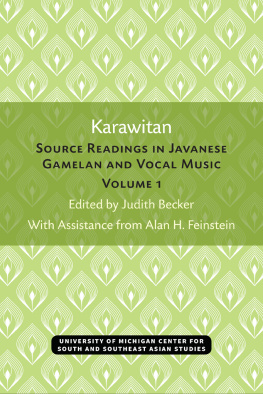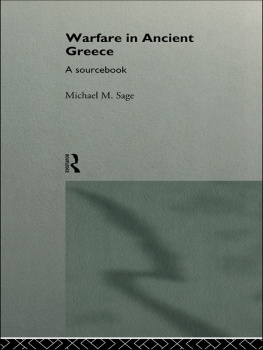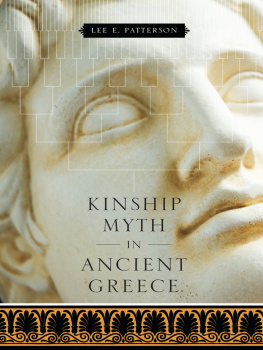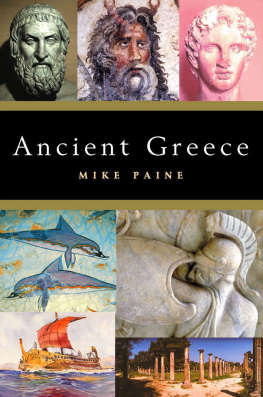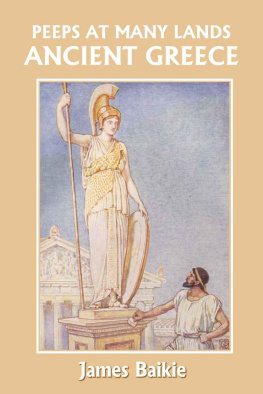Mark - Music education: source readings from ancient Greece to today
Here you can read online Mark - Music education: source readings from ancient Greece to today full text of the book (entire story) in english for free. Download pdf and epub, get meaning, cover and reviews about this ebook. City: London, year: 2013, publisher: Taylor & Francis (CAM);Routledge, genre: Religion. Description of the work, (preface) as well as reviews are available. Best literature library LitArk.com created for fans of good reading and offers a wide selection of genres:
Romance novel
Science fiction
Adventure
Detective
Science
History
Home and family
Prose
Art
Politics
Computer
Non-fiction
Religion
Business
Children
Humor
Choose a favorite category and find really read worthwhile books. Enjoy immersion in the world of imagination, feel the emotions of the characters or learn something new for yourself, make an fascinating discovery.
Music education: source readings from ancient Greece to today: summary, description and annotation
We offer to read an annotation, description, summary or preface (depends on what the author of the book "Music education: source readings from ancient Greece to today" wrote himself). If you haven't found the necessary information about the book — write in the comments, we will try to find it.
Mark: author's other books
Who wrote Music education: source readings from ancient Greece to today? Find out the surname, the name of the author of the book and a list of all author's works by series.
Music education: source readings from ancient Greece to today — read online for free the complete book (whole text) full work
Below is the text of the book, divided by pages. System saving the place of the last page read, allows you to conveniently read the book "Music education: source readings from ancient Greece to today" online for free, without having to search again every time where you left off. Put a bookmark, and you can go to the page where you finished reading at any time.
Font size:
Interval:
Bookmark:
MUSIC EDUCATION
Music Education: Source Readings from Ancient Greece to Today is a collection of thematically organized essays that illuminates the importance of music education to individuals, communities, and nations. The fourth edition has been expanded to address the significant societal changes that have occurred since the publication of the last edition, with a greater focus on current readings in government, philosophy, psychology, curriculum, sociology, and advocacy. This comprehensive text remains an essential reference for music educators today, demonstrating the value and support of their profession in the societies in which they live.
Michael L. Mark is Emeritus Professor of Music at Towson University, where he served as Dean of the Graduate School. Previously, he was head of the music education program at The Catholic University of America.
MUSIC EDUCATION
Source Readings from Ancient Greece to Today
Fourth Edition
EDITED BY
Michael L. Mark
Towson University

Fourth edition published 2013
by Routledge
711 Third Avenue, New York, NY 10017
Simultaneously published in the UK
by Routledge
2 Park Square, Milton Park, Abingdon, Oxon OX14 4RN
Routledge is an imprint of the Taylor & Francis Group, an informa business
2013 Taylor & Francis
The right of the editor to be identified as the author of the editorial material, and of the authors for their individual chapters, has been asserted in accordance with sections 77 and 78 of the Copyright, Designs and Patents Act 1988.
All rights reserved. No part of this book may be reprinted or reproduced or utilised in any form or by any electronic, mechanical, or other means, now known or hereafter invented, including photocopying and recording, or in any information storage or retrieval system, without permission in writing from the publishers.
Trademark notice: Product or corporate names may be trademarks or registered trademarks, and are used only for identification and explanation without intent to infringe.
First edition published 1982 by Routledge
Third edition published 2008 by Routledge
Library of Congress Cataloging in Publication Data
Music education : source readings from ancient Greece to today / edited by Michael L. Mark.Fourth edition.
pages cm
Includes bibliographical references and index.
1. MusicInstruction and studyHistorySources.
2. MusicPhilosophy and aesthetics. I. Mark, Michael L., editor.
MT2.M94 2013
780.71dc23
2012029344
ISBN: 9780415506885 (hbk)
ISBN: 9780415506892 (pbk)
ISBN: 9780203694398 (ebk)
Senior Editor: Constance Ditzel
Editorial Assistant: Elysse Preposi
Production Manager: Gail Newton
Marketing Manager: Jessica Plummer
Project Manager: Swales & Willis
Copy Editor: Swales & Willis
Proofreader: Swales & Willis
Cover Design: Jayne Varney
Preface
Historically, music has been a part of every culture and society. It has served a variety of functions, including religious, social, entertainment, and educational. As will be understood from the readings that follow, music has not served the same function in every culture and society. Leonard Tan reminds us that since antiquity, philosophers have engaged in intense discourse with regard to the value of music. The following excerpts present a landmark debate between two rival philosophical schools in ancient China: Mohism and Confucianism. The first excerpt from the treatise Against Music was written by Mozi (ca. 470 BCE391 BCE) of the Mohist School. Mozi argues that although music gratifies the senses, it is not one of the three necessities of life. The second excerpt from the treatise Discourse on Music was written by Xunzi (ca. 312 BCE30 BCE) of the Confucian School as a rebuttal to Mozi. In building his argument, Xunzi exploits the fact that the Chinese language uses the same character to denote music and joy. He claims that since music is joy, and joy is an essential aspect of human nature, humans cannot possibly live without music.
Mozi
The Value of Music: An Ancient Chinese Philosophical Debate
Against Music
It is the business of the benevolent man to seek to promote what is beneficial to the world, to eliminate what is harmful, and to provide a model for the world. What benefits men he will carry out; what does not benefit men he will leave alone. Moreover, when the benevolent man plans for the benefit of the world, he does not consider merely what will please the eye, delight the ear, gratify the mouth, and give ease to the body. If in order to gratify the senses he has to deprive the people of the wealth needed for their food and clothing, then the benevolent man will not do so. Therefore Mozi condemns music not because the sound of the great bells and rolling drums, the zithers and pipes, is not delightful; not because the sight of the carvingsand ornaments is not beautiful; not because the taste of the fried and broiled meats is not delicious; and not because lofty towers, broad pavilions, and secluded halls are not comfortable to live in. But though the body finds comfort, the mouth gratification, the eye pleasure, and the ear delight, yet if we examine the matter, we will find that such things are not in accordance with the ways of the sage kings, and if we consider the welfare of the world we will find that they bring no benefit to the common people. Therefore Mozi said: Making music is wrong!
Now if the rulers and ministers want musical instruments to use in their government activities, they cannot extract them from the sea water, like salt, or dig them out of the ground, like ore. Inevitably, therefore, they must lay heavy taxes upon the common people before they can enjoy the sound of great bells, rolling drums, zithers, and pipes. In ancient times the sage kings likewise laid heavy taxes on the people, but this was for the purpose of making boats and carts Now if musical instruments were also used for the benefit of the people, I would not venture to condemn them. Indeed, if they were as useful as the boats and carts of the sage kings, I would certainly not venture to condemn them.
There are three things the people worry about: that when they are hungry they will have no food, when they are cold they will have no clothing, and when they are weary they will have no rest. These are the three great worries of the people. Now let us try sounding the great bells, striking the rolling drums, strumming the zithers, blowing the pipes, and waving the shields and axes in the war dance. Does this do anything to provide food and clothing for the people? I hardly think so So Mozi said: Making music is wrong!
Xunzi
Discourse on Music
Music is joy. Being an essential part of mans emotional nature, the expression of joy is, by nature, inescapable. This is why men cannot do without music. Where there is joy, it will issue forth in the sounds of the voice and be manifest in the movement of the body. And it is the Way of Man that singing and movement, which are excitations of mans emotional states according to the rules of inborn nature, are fully expressed in music. Hence, since it is impossible for men not to be joyful, where there is joy, it is impossible that it should not be given perceptible form. But if its form is not properly conducted, then it is impossible that disorder should not arise.
The Ancient Kings hated such disorder. Thus they instituted as regulations the sounds of the Odes and the Hymns to offer guidance. This would cause the sounds to be sufficient to give expression to the joy, but not to lead to dissipation. It would cause the patterns to be sufficient to mark the separations, but not so as to seem forced. It would cause the intricacy or directness of melody, the elaboration or simplification of instrumentation, the purity or richness of sound, and the rhythm and meter of the music to be sufficient to stir and move the good in mens hearts and to keep evil and base qi sentiments from finding a foothold there. Such was the plan of the Ancient Kings in establishing their music. Yet Mozi condemns it. How can this be endured!
Next pageFont size:
Interval:
Bookmark:
Similar books «Music education: source readings from ancient Greece to today»
Look at similar books to Music education: source readings from ancient Greece to today. We have selected literature similar in name and meaning in the hope of providing readers with more options to find new, interesting, not yet read works.
Discussion, reviews of the book Music education: source readings from ancient Greece to today and just readers' own opinions. Leave your comments, write what you think about the work, its meaning or the main characters. Specify what exactly you liked and what you didn't like, and why you think so.

